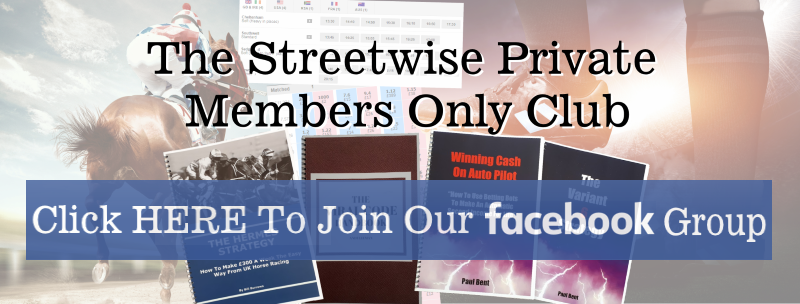
I recently read about a soap opera fan who won a competition organised by the supermarket chain, Tesco. The prize, valued at £10,000, was a two week, all-expenses-paid trip to Australia to meet the cast of Neighbours, for herself, her husband and two children.
She went on the trip, but when she got back, complained to the Advertising Standards Authority that the trip wasn’t worth £10,000. She argued that she could have bought it cheaper. In a rare display of good sense the ASA rejected her claim, but it doesn’t alter the fact that she had the brass neck to make it in the first place.
You will probably have one of two reactions to that story. If you don’t run a business dealing with the general public, you’ll be incredulous. If you do run a business that deals with the public, you’ll be shaking your head at the audacity of it, but you won’t be surprised.
When I first started my company, one of the most difficult things I had to come to terms with was customers ~ or rather, how far their behaviour sometimes deviated from what I expected and understood. It was something that cost me a lot of money.
Our first product as a publishing business was a major success by just about every meaningful criterion. But my perception at the time – because I didn’t know what I’m about to tell you – was that it was a dismal failure. You see the only people I ever seemed to hear from were people who didn’t like it, wanted their money back – or both. Over a period of about 18 months, I developed a growing belief that people hated both the product and us.
Because of this, I held back from offering these people anything else. My own warped sense of reality was that the only reason everyone else hadn’t complained was because they’d forgotten who’d sold them the product. And by offering them something else, I was about to remind them!
Anyway, after about 18 months or so, I decided to throw caution to the wind (or at least a little caution) and offer the people who’d bought our first product, a new publication we’d been working on. I wasn’t brave enough to mail them all, but sent out about 1,000 letters – just to test the water. I braced myself for the fall-out…and it came in the form of 300 orders. That’s right a 30% response ~ and this at a time when 3% was considered excellent.
You see, what I hadn’t realised, is that some people will always complain, no matter what. Tesco found this with their competition. And the ones with a propensity to complain are almost infinitely more vociferous than the ones who have no such propensity. For the most part, happy customers are content to be…happy. They don’t generally feel the need to shout about it. As a result you have to be very cautious about what you read into the autonomous and unsolicited feedback you get from customers.
The true picture was that the majority of people who bought that first product from us, loved it. It was only when we offered them something else – and gave them the opportunity to vote with their wallets – that this became readily apparent.
There’s a very influential old saying, variously attributed to department store moguls like Marshall Field in the United States and Harry Selfridge in the UK:
“The customer is always right.”
It has an awful lot to answer for. Whilst it’s vital to listen to, and react to what your collective customers are saying, if you pay too much heed to the opinions and demands of a disproportionately vociferous dissatisfied minority, you do no favours to your bank balance, and none for the satisfied majority either.
My gut reaction all those years ago was that we shouldn’t offer another product. My guess is that someone at Tesco may have said something like: “Well if that’s how competition winners react, sod ‘em, we won’t do it again,” when they heard about the complaint.
In both cases, that would be the wrong decision…
No matter what you’re selling (or even giving away!) some people will always be dissatisfied. And you will hear from them. Others will be thrilled, but you will hear from very few of those. Get this clear in your mind, and put systems in place to get the true collective picture, and the way forward for your business becomes all the clearer.
Kind Regards

John Harrison
PUBLISHERS NOTICE
PUBLISHERS NOTICE


Hello,
My name is Michael White, and what I’d like to share with you now is a
total game-changer. With your permission, over the next few minutes I’ll
explain a money-loophole that could be your ticket to the laziest and
fastest retirement imaginable.
Please let me first put your mind at rest about a few things…
There’s no limit to the number of times you can use this under one person’s name. You could use this secret regularly…
. You DON’T need to already have a bank account with a
particular bank or building society.
. You DON’T need to have been mis-sold a pension or investment.
. You DON’T need to buy shares of a specific company or bank.
. You DON’T have to pay this money back- it’s NOT a loan. It’s
YOUR money, free and clear.
. You DON’T have to own a home, and you can use the money for
ANYTHING you like.
. You DON’T need a credit rating or be at any particular earnings
level or be on benefit.
. You DON’T need a computer or any technical know-how. You
could even place a call instead of make a few clicks if you don’t
have a computer.
NOBODY else knows this secret because I discovered it – through
the application of an ancient code. I will share it with you HERE for
legitimate reasons I’ll explain in a moment. And I guarantee you’ll
be stunned at how this powerful secret could force the banking
system into letting you retire early…
Take A Look HERE

Very Best Wishes,


